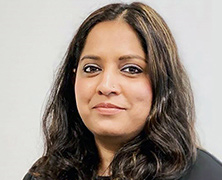Increasing Diversity in STEM
We need to work on two areas here: one, making children (girls) aware of the different areas that can be explored in the field of STEM and two, increasing awareness around diversity and inclusion in the organizations that currently offer roles in STEM.
While one will ensure more participation through early education and help increase the representation of women in STEM careers, two will bring about a mindset change so that we are able to create a more inclusive environment in which diverse individuals may thrive at work.
When organizations are truly committed to making a difference and increasing diversity at all levels, change happens.
The Changing World of STEM
STEM is becoming an integral part of our daily lives. We are increasingly more dependent on technology and engineering than ever before; we use it to find solutions to local, as well as global problems. We are also living through a collective realization of how understanding science has tangible and practical implications in our daily lives. Hence, there is a need to include STEM skills in the basic definition of literacy if we want to empower the next generation to address global challenges. Teaching science, technology and engineering skills for the real world has never been more important.
Moving Women Forward in STEM
Addressing organizational, cultural, and gender inequities that prevent organizations from attracting and retaining women in STEM can serve as a big step in this direction. These might simply translate to having flexible work policies and arrangements, policies to sustain the extended roles in STEM, mentoring partnerships with universities, and opportunities to let women thrive in their current roles by valuing what they bring to the table.
Women in STEM 5 Years down the Road
Increased support from individuals and organizations committed to making a difference will eventually provide a platform that allows women to bring their authentic selves to work. We are slowly moving to a world wherein diversity is no longer seen as an option but an essential cultural value to have.







